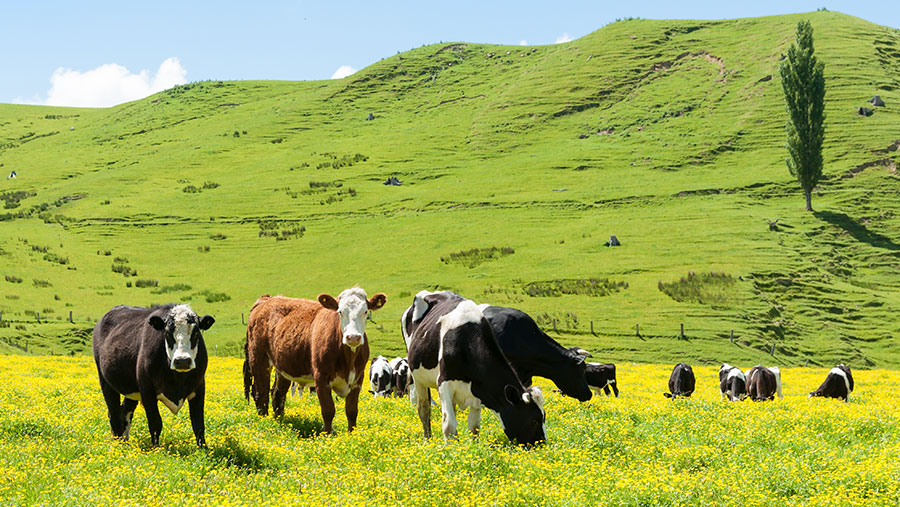New Zealand delight at trade deal contrasts with UK farmer dismay
 © Brian Scantlebury
© Brian Scantlebury New Zealand’s red meat sector has given a warm welcome to the new free-trade deal with the UK – in stark contrast to British farm groups, who have almost universally condemned the government’s move to open up trade between the two countries.
In a joint statement, Beef and Lamb New Zealand and the country’s Meat Industry Association (MIA) said farmers, processors, exporters and the whole economy would benefit from greater export revenue once the deal is ratified.
“While the red meat sector is disappointed in the length of the transition period, and quality of access is often in the detail of trade agreements, we recognise that this was a difficult negotiation,” said MIA chief executive Sirma Karapeeva.
See also: Farm leaders fearful as Boris agrees NZ free-trade deal
“With full tariff elimination after 15 years and quota volumes that grow until that time, companies will be able to build their interests in the UK market.”
Quotas
The deal envisages that tariff-free sheepmeat quotas will grow by 35,000t/year for the first four years (on top of the country’s existing 114,000t WTO quota) and then by 50,000t/year from year’s five to 15.
This will give New Zealand a combined tariff-free access of up to 149,000t of sheepmeat in year one, rising to 164,000t in years five to 15 – quantities the country has failed to fulfil in recent times.
For beef, New Zealand currently has just 545t/year of duty-free access to the UK, but the planned deal will see this increase steadily to 38,820t by year 10, and 60,000t by year 15.
According to the MIA, the UK is only 75% self-sufficient in beef and needs to import more than 300,000t/year – providing New Zealand with a great opportunity to take more market share.
Strong reaction
These developments have sparked a strong reaction among UK farm groups.
National Sheep Association chief executive Phil Stocker said it risked undermining UK sheep farming and the standards that the country’s hardworking shepherds adhere to.
“You only have to see the statements being made by the red meat sector in New Zealand for evidence they intend to send more and more sheepmeat in our direction.
In addition to the increase in access by Australia, in just over a decade, these two countries will have access to our entire volume of lamb consumption,” he said.
Quality Meat Scotland chief executive Alan Clarke also saw a particular threat to the country’s beef producers.
“With farmgate prices in Scotland 25-30% higher than in New Zealand, this leaves Scottish farmers open to considerable competition,” he said.
Precedent
Mark Tufnell, deputy president of the Country Land & Business Association, said: “Instinctively, we support free trade, but by definition there has to be something in it for both sides.
“We see the opportunity for New Zealand farmers in this deal, but aren’t so sure what the opportunity is for those of us in the UK.”
The deal also set a worrying precedent for other free-trade agreements with other major food exporters – many of which have far lower animal welfare and environmental standards.
NFU Scotland president Martin Kennedy said the negotiations had been concluded without proper parliamentary scrutiny, having been agreed in advance of the statutory Trade and Agriculture Commission being established.
Farmers’ Union of Wales president Glyn Roberts said the deal showed the willingness of the UK government to undermine UK farming and food security in return for negligible benefits to the economy.
